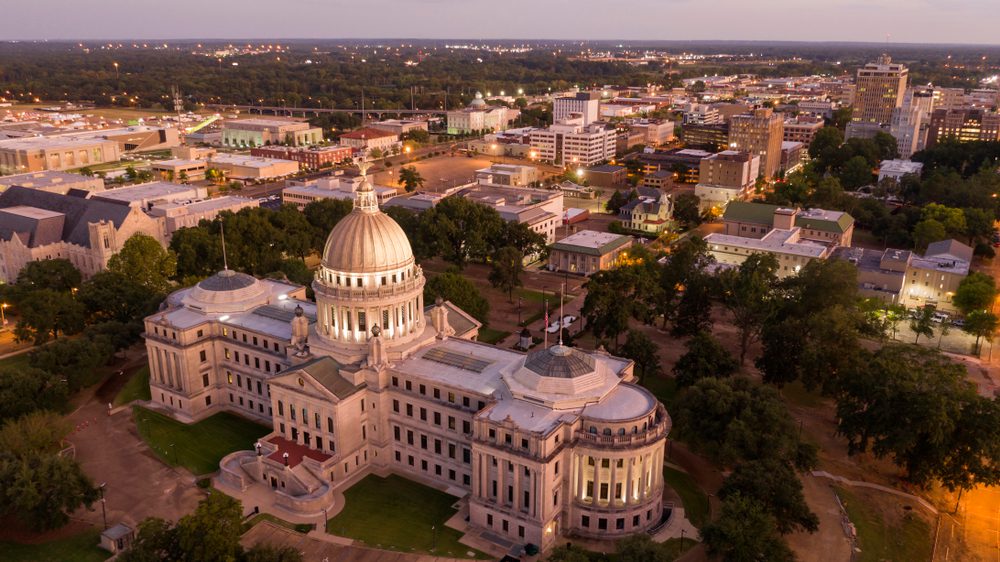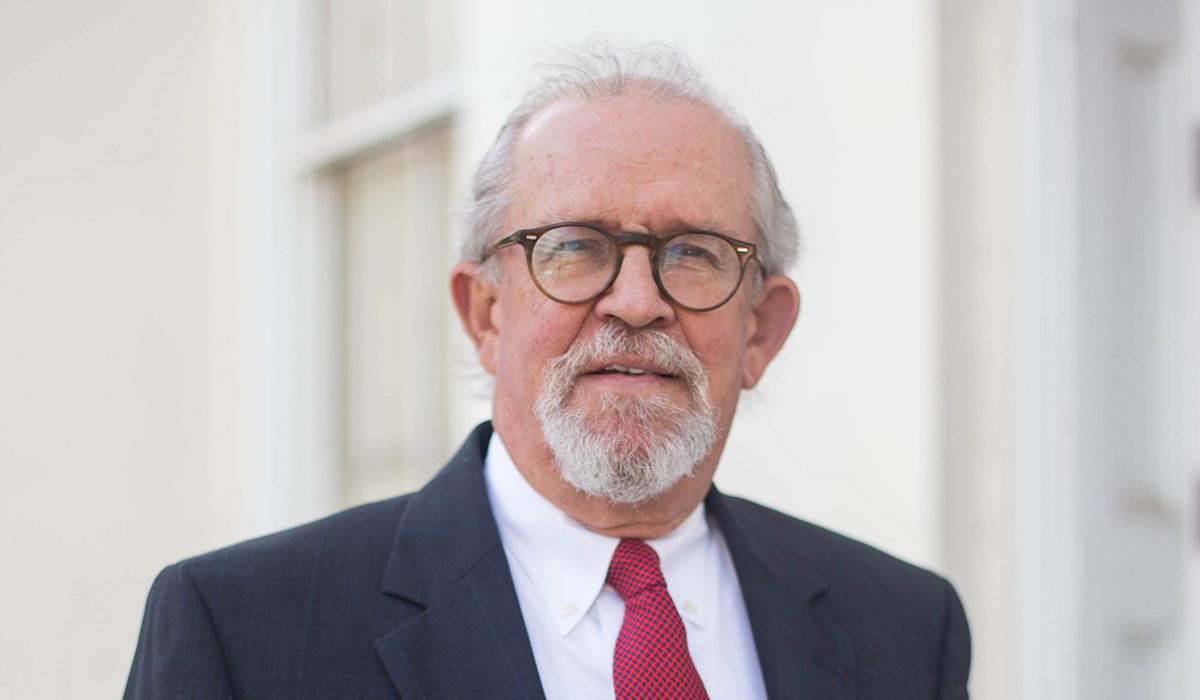
Aerial Perspective at Dusk of Jackson, Mississippi
In terms of state investment, Jackson outranks agencies like those led by Republican elected officials, such as the Department of Audit, Secretary of State, Office of the Attorney General, and the Governor’s Office, as well as 76% of statewide agencies funded by the Legislature.
In 2017, the Capitol Complex Improvement District, or CCID, was established by the Mississippi Legislature to improve Jackson infrastructure. The legislation (House Bill 1226) was embraced by significant bipartisan majorities in both chambers, passing the House with 105 votes and the Senate with 42 votes.
The Legislature provided about $6 million yearly to fund improvement projects necessary for a well-functioning urban environment. Subsequent legislative investments have been made into the CCID, including a loan, funds for a road project near Jackson State University, and increased recurring funds authorized this past legislative cycle.
The CCID is managed by the Department of Finance and Administration alongside a project advisory committee, of which I serve as chair. We are a 9-member group statutorily comprised of:
- The Mayor of Jackson;
- A member appointed by Jackson State University;
- A member appointed by the Jackson City Council;
- A member appointed by the University of Mississippi Medical Center (located in Jackson);
- The director of the Jackson public works department; and
- Appointments from the Governor, Lieutenant Governor, and Speaker of the House.
We work with DFA to adopt a comprehensive plan for Jackson improvement projects.
Our advisory committee is diverse, representing a cross-section of city officials. We’ve held 20 meetings since 2018. Of those meetings, I have missed two due to travel and illness. The Jackson Mayor has missed eight meetings. The Jackson City Council’s appointment has either been vacant and/or absent for eleven meetings. There have been 5 public works directors for the City of Jackson during my time as CCID chair.
Based on our comprehensive plan (available at DFA’s website), the CCID project advisory committee identified about $40 million in immediate priorities via eight meaningful projects, including: replacing water lines; repairing or replacing sewer lines and stormwater lines; asphalt rehabilitation and replacement; sidewalk repairs to meet ADA requirements; curb and gutter repairs; installation or improvements to ADA ramps at intersections; and other such important (but boring to read about) work.
At this time, we have completed four projects, and four remain ongoing. It’s slow and steady, but the model is working.
As chair of the CCID project advisory committee, I’m honored to have the opportunity to work on Jackson infrastructure issues. So, when I read news reports suggesting a pattern of disinvestment in our state’s capitol city, it is with much curiosity – and even greater confusion. I believe one’s opinions ought to be led – or at least majorly influenced – by the facts. I did an analysis a few years back that might shed light on the issue. Based on that research, here are my observations about legislative spending patterns.
Let’s look at spending in the first two terms since Republicans achieved a majority at the State Capitol, to go along with the Governor’s Office. From 2012 through 2019, state investment in the City of Jackson was approximately $263.9 million, or an average investment of nearly $33 million each year. These figures only include projects within Jackson, not investments outside the city limits.
(I purposely excluded tens of millions of Hinds County projects, despite Jackson directly benefitting from such monies. I also did not include formula monies flowing to Jackson for K-12 education.)
That means the state’s Capital City reaps more investment, on average, than nearly 76 percent of state agencies, based on the state support budget adopted by the Legislature this year. Said differently, of the 110 or so agency appropriations, I counted 26 that received funding above $33 million.
Jackson outranks agencies like those led by Republican elected officials, such as the Department of Audit, Secretary of State, Office of the Attorney General, and the Governor’s Office.
In a state where agriculture is the number one industry, Jackson gets more state investment than the Mississippi Department of Agriculture and Commerce, Mississippi State University’s College of Veterinary Medicine, and Alcorn State’s agriculture research programs.
In a state where we love – and have a constitutional right – to hunt and fish, Jackson gets more money, on average, than our Wildlife, Fisheries, and Parks department, our Marine Resources department, and even the Mississippi State Forest & Wildlife Research Center.
If there is a pattern of disinvestment in Jackson since Republicans took office, I’ve not observed it. (And, while I have not analyzed spending after 2019, I suspect investment has only increased as state tax collections reach record highs.)
There’s no doubt: Jackson is a complicated place. Political tensions often run high, and long memories can stand in the way of future progress. From my perspective, however, I’m proud the Legislature has consistently invested in the state’s Capitol City.
Jackson matters economically, culturally, politically. It’s the largest city in our state and the only one many non-Mississippians ever visit. We owe it to our people–and especially Jackson residents–to be a part of the solution in creating a 21st century city that can provide basic services, like clean drinking water and drivable roads.
The bar is low, the responsibility, great, and the path forward, together. Come on y’all – we can do this!











